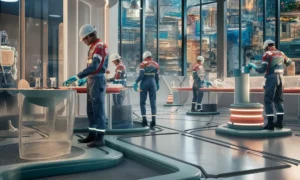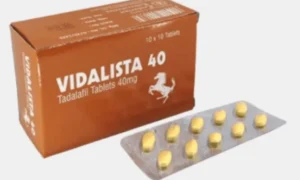In a competitive market, an identifiable professional appearance can have a huge impact on how customers perceive and trust a business. Specialized clothing is one of the best ways to create that appearance.
The significance of designing a proper food industry uniform cannot be overemphasized; they do not only bring employees together but also help keep them safe as well as maintain brand integrity within this sensitive sector of production and service delivery.
Why do we need uniforms in the food industry?
Uniforms have always been important across all sectors where they are used to foster professionalism, promote solidarity among workers or establish identity for different groups within organizations. In the food industry, however, things take another turn because these attires become both protection against contamination points and signs showing commitment to quality by businesses involved in this sector.
- Identification and Company Image: This is one of the main reasons why companies should adopt food service uniform policies – so that clients can easily identify who works there when they need assistance. Also, incorporating logos and colors associated with brands into staff uniforms helps raise awareness about such enterprises thus creating strong memories which may make people trust them more than others.
- Safety Measures: People working in buildings under construction wear clothes with high visibility while fire fighters use flameproof jackets among other things. Similarly, kitchen personnel must put on garments designed to prevent the spread of germs from one place (food) to another as well as protect against specific risks found within their work environment.
- Cleanliness and Hygiene Management: Maintaining high levels of cleanliness has always been crucial especially where foods are prepared or served frequently; therefore, having proper dressing code like using antibacterial fabrics for making specialized food industry uniform minimizes cross contaminations thus safeguarding against diseases caused by allergies plus reducing pathogens’ transmission rates.
The role of food production service uniformity
The food production sector requires uniforms not just for looks but also as a regulatory measure. Whether it is processing, packaging or serving; the safety of those involved and purity of what they handle largely depends on quality features exhibited by these attires.
Food industry uniform should be designed in accordance with HACCP (Hazard Analysis Critical Control Points) standards so that both staff members and final products can be protected at the same time. Some design and operational requirements under this system include:
- No waist level pockets should be found on any part of clothing worn; moreover, some establishments may prohibit usage altogether because loose items may accidentally fall into foods thereby causing contamination while also acting as breeding grounds for bacteria which are difficult to reach during cleaning exercises.
- All garments must not have buttons since they easily come off posing physical risks towards edibles while also harboring germs within crevices where it becomes impossible to clean effectively.
- The materials chosen ought to withstand frequent washing without losing their original shape or letting threads become loose, thus ensuring compliance with HACCP guidelines by preventing contamination from such sources.
- Appropriate fitting ensures that no fabric touches edibles thus minimizing spillage risk leading ultimately to increased efficiency among workers involved in handling different types of meals within various stages throughout the preparation process.
Benefits Of Putting Food Service Uniforms First
- Food Safety: Personal clothes act as a bridge between employees’ bodies and consumable items therefore uniforms are necessary for proper hygiene care in ensuring safe production processes of goods meant for human consumption.
- Cross Contamination Prevention: Zones within food production facilities have different levels when it comes to cleanliness uniform policies take account these variations thereby limiting chances where contaminants might be moved from one area to another.
- Professionalism and Branding: Having a professional image is important for a company’s reputation and credibility. Creating brand awareness through personalized food service uniforms can help reinforce this effect.
- Employee Safety and Comfort: Advanced uniforms have safety features such as breathable fabrics, ergonomic designs, and accessories like slip-resistant shoes or aprons which contribute towards employee welfare by ensuring their protection in hazardous environments hence making the workplace safer.
The Ease and Cost-Effectiveness of Rental Uniforms
Opting into uniform rental services presents itself as an expedient method that offers many benefits to businesses. Instead of buying and maintaining them, organizations can join forces with these service providers who will take care of everything including regular maintenance up to replacements. Such programs are designed to meet different industry needs in terms of functionality as well as aesthetic appeal which are subject to frequent change due to market dynamics.
There are several advantages associated with rented food service uniforms; they guarantee cleanliness, regulatory compliance requirements met among other things such cost saving opportunities or adaptability. It supports safety standards within this sector while fostering professionalism thus becoming vital part towards smooth running of food service establishments.
Food service uniforms should be seen beyond just being mandatory but rather considered strategic investments towards brand building operational efficiency besides safeguarding public health interests too. As the demand for more specialized clothing in relation to success within various segments continues rising higher remains equally important its contribution towards achieving desired results particularly when it comes down on hygiene levels observed during handling edibles.







